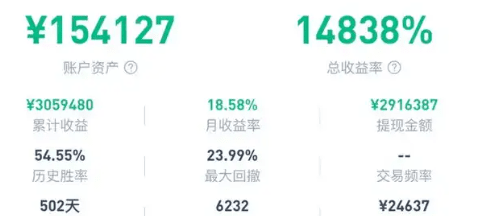“First convert on-chain assets into clean fiat currency in overseas banks, then return to the mainland in batches, small amounts, and in compliance.”
Here’s a practical 'three steps and nine tips' plan, with unchanged meaning, more straightforward wording.
────────────────
Step 1: Convert U to USD / HKD in Overseas Banks
1. Choose an Exchange: Transfer U to licensed exchanges like Kraken or Coinbase; avoid small exchanges and OTC groups.
2. Currency Exchange: Directly list USDT/USD or USDT/HKD on the exchange, use TWAP for large amounts to minimize slippage.
3. Withdraw to Overseas Banks:
• USD Path: Kraken → Wise (or Revolut) → HSBC / Standard Chartered / ZA Bank in Hong Kong.
• HKD Path: Kraken → iFAST → HSBC Hong Kong.
Single transaction ≤500,000 USD generally passes instantly and will not be blocked by SWIFT.
4. Large 'Safe Deposit': If 10 million U is operated at once, it can be split into 3-4 lines running in parallel, staggering dates to avoid triggering manual review for single transactions over 500,000 USD.
────────────────
Step 2: Complete Compliance Monetization in Hong Kong
1. Open a Hong Kong Card: Prepare a HSBC One or Standard Chartered Priority Banking account in advance, which can be booked online through the mobile app.
2. Fund Settlement: After arrival, keep it for 7 days, buy some money market funds or short-term bonds, leaving a trace of 'investment' rather than quick entry and exit.
3. Exchange for RMB:
• Counter wire transfer back home: each transaction ≤50,000 USD equivalent, with the note 'Investment Principal Return'.
• If cash is urgently needed, go to a licensed currency exchange in Hong Kong (not a street-side shop), count the cash in person and deposit it into an ATM immediately, recording the entire process on video. Be careful not to carry 1 million HKD in cash on the street at once.
4. Keep Document Records: Scan all Kraken withdrawal records, Wise transaction flows, and Hong Kong bank deposit slips into PDF; they can serve as proof of innocence when encountering frozen cards.
────────────────
Step 3: Return Home to Secure Funds from Risk Control
1. Maintain Cards: Start using target cards for online shopping, paying credit cards, and buying financial products 3 months in advance to create normal transaction flow.
2. Gradual Return to Home Country:
• Monthly remittance ≤300,000 RMB, divided into 3-4 transactions, with intervals of more than 5 days.
• After the funds arrive, first keep them in a demand deposit account + buy some short-term financial products; do not transfer and withdraw immediately.
3. Card Rotation: Prepare 2–3 different first-class cards from different banks, take turns receiving payments to reduce the risk of a single card being monitored.
4. Encountering Frozen Cards:
• Bring your ID and transaction records to the outlet within 48 hours for 'fraud risk verification'; generally, it takes 3-7 working days to unfreeze.
• In case of judicial freezing, immediately seek a lawyer and a notary to certify the source of funds; do not try to handle it on your own.
────────────────
Add two alternative methods (for informational purposes only, risk assumed by the user)
A. Real Estate / Vehicle Payment: Find a completely trustworthy over-the-counter currency dealer, transfer U to him directly, and he will pay the property fee to the developer or landlord on your behalf, with the online contract in your name, effectively converting large amounts of U into real estate which can then be mortgaged for cash, but the premise is to have strong connections.
B. Offshore Trust: When assets ≥3 million USD, set up a BVI trust + DBS Private Banking, transfer U to the trust first, then distribute a fixed amount to the mainland annually through a family office; suitable for high-net-worth individuals who do not plan to return for a long time.
────────────────
Summary in one sentence
10 million U is not 1,000 yuan; any 'one-click withdrawal' equals sending heads.
First, comply with regulations overseas, then return to the country in batches, and finally maintain good credit in order to truly pocket the profits.
